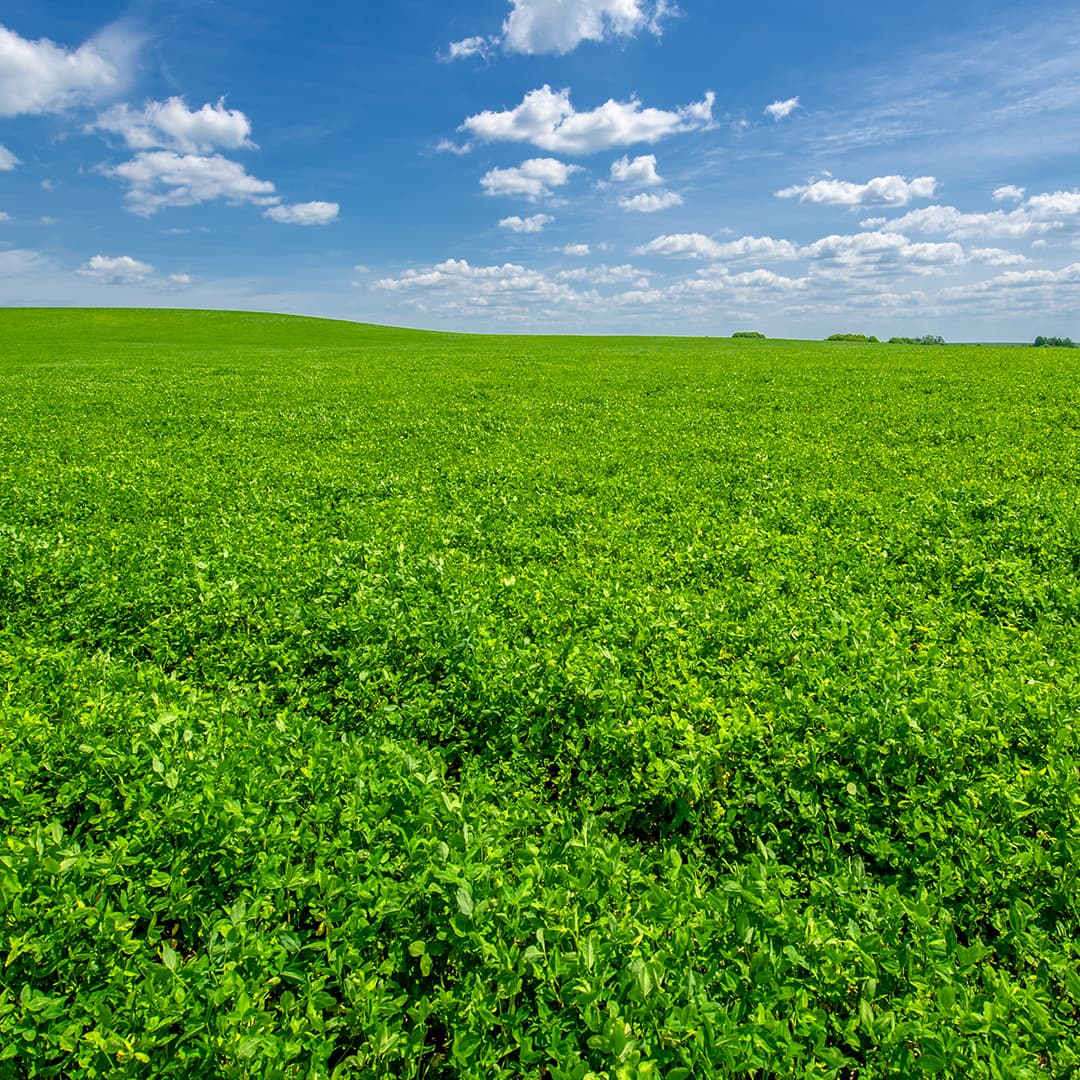As soil salinity issues continue to increase across the United States, more farmers are seeking salt-tolerant varieties to lessen the impact of excessive salt on alfalfa production. At FGI, our researchers are working to develop high-performing salt-tolerant alfalfa varieties.
Standard Tests Lack Field Verification
Standard greenhouse tests developed by the alfalfa research community include a one-week salt germination assessment that measures alfalfa seed germination under moderately high salt conditions and allows comparison of a new variety or breeding line to established tolerant and non-tolerant checks. A second six-month greenhouse test is used to measure forage production potential under saline conditions.
Although these tests are designed to cover two independent and important components of salt tolerance, they are short in duration and lack the interaction with stresses typical of saline soils. Plus, they are done in a greenhouse rather than the field.
Unlock Complexities in the Field
To better understand the complexity of alfalfa growth and development in saline soils and to validate the efficacy of the greenhouse salt test, we have identified field testing/selection locations that typify this combination of stresses. Because our initial field trials in southeast Washington emphasized the importance of doing selection in the field (as well as in the greenhouse), we expanded field locations, adding test sites in California, Colorado, South Dakota and Texas.
After comparing various strategies for improving alfalfa performance in typical saline soils, we’ve found the best approach combines greenhouse selection for salt tolerance, followed by in-field selection. Greenhouse testing alone is generally insufficient to provide adequate tolerance to the multiple stresses common with saline conditions in the field.
Molecular markers associated with various components of salt tolerance are also being developed that will increase our ability to select parents with favorable traits and speed our breeding process. This high-precision and high-throughput evaluation will complement selection from our various salt nurseries and forage trials in developing new varieties with improved adaptation to problem soils.
At FGI, we will continue to focus on developing products with exceptional agronomic performance and relevant tolerance to the salt, cold, heat, drought and pest stresses typical for major alfalfa production areas in the U.S. While we are committed to using state of the art technology and greenhouse/growth chamber testing, we will always combine this with extensive field selection and testing to insure exceptional on-farm performance.



